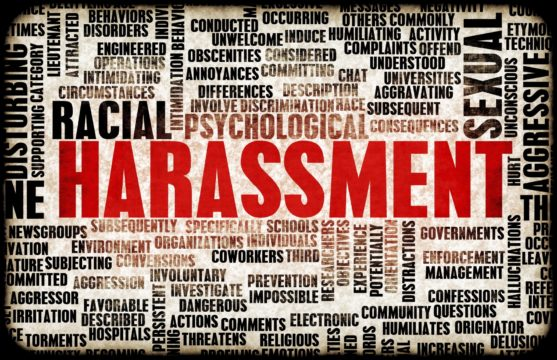Tracey Young. (Jan. 29, 2021). Employment Law Information: Under U.S. Federal Law, Can Your Employer Make You Get the COVID Vaccine? Canadian Advocacy Centre for Health, Safety and Justice. Retrieved from: https://canadianadvocacycentre.blogspot.com/2021/01/employment-law-information-under-us.html.
Introduction
Workers, employees and employers all over the world are facing decisions, pressures, and challenges around the issue of COVID vaccination at work. In the article below Greg Glaser and Mary Holland provide some employment law information under federal law in the United States. Their information provided is helpful for stakeholders in other countries to consider, and can be a jumping off point for learning more about these issues in our own jurisdictions.
The most important elements I see being relevant to work-related COVID, or other vaccinations includes the following:
1. Voluntary with no coercion, duress, inducements (including bonuses, or pay to take vaccines), or pressure. 100% fully voluntary and health care decision-making rights, autonomy, and self-determination are respected by employers.
2. Full disclosure of contraindications, known, or suspected health conditions, or other factors that contribute to increased risk of Adverse Health events post-vaccination, including death.
3. Individual and class risk assessment of risks associated with COVID-19, or other infectious diseases, and the known risks and benefits of taking a COVID vaccine.
4. Informed Consent to receive vaccines with full disclosure of risks, benefits, unknowns.
5. Precautionary principle that weighs the need to take precautionary actions via COVID vaccination over the potential benefits, risks and costs of getting COVID-19 for that individual.
6. If vaccines are still in experimental phases, like the Pfizer and Moderna, and other ones are, people must be fully informed about their civil rights under the Nuremberg Code.
Article:
Under Federal Law, Can Your Employer Make You Get the COVID Vaccine?
States and employers, under federal law, can’t mandate emergency use products such as the Pfizer and Moderna COVID vaccines. But that doesn’t mean some won’t try.
By Greg Glaser, Esq. and Mary Holland 1. (Jan. 29, 2021). The Defender. Retrieved from: https://childrenshealthdefense.org/defender/under-federal-law-can-your-employer-make-you-get-covid-vaccine/.
Are state governments and private employers about to mandate COVID-19 vaccines?
There are many opaque current and future legal issues around COVID-19 and the measures to contain it. Fortunately, because the Pfizer and Moderna vaccines are emergency use products, and as such, not fully licensed, the law is clear: States may not mandate the vaccines, and private entities do so at the peril of violating federal law.
The law governing vaccines approved for emergency use
For the time being, there are only two COVID-19 vaccines available in the United States: the Pfizer-BioNTech vaccine and the Moderna vaccine. The U.S. Food and Drug Administration (FDA) has issued them both Emergency Use Authorizations (EAU) but not yet full vaccine licenses.
New York State Assemblywoman Linda Rosenthal recently proposed a bill to mandate COVID-19 vaccines, but she apparently neglected to consult federal law on emergency use authorization.
“Emergency Use Authorization” means that any product with this designation must be voluntary. Under 21 U.S.C. § 360bbb-3, “Authorization for medical products for use in emergencies”:
(ii) Appropriate conditions designed to ensure that individuals to whom the product is administered are informed —
(I) that the Secretary [of Health and Human Services] has authorized the emergency use of the product;
(II) of the significant known and potential benefits and risks of such use, and of the extent to which such benefits and risks are unknown; and
(III) of the option to accept or refuse administration of the product, of the consequences, if any, of refusing administration of the product, and of the alternatives to the product that are available and of their benefits and risks.
Under federal preemption doctrine, this federal EUA law trumps state law, meaning that states and municipalities may not mandate EUA products. As the FDA states:
“FDA believes that the terms and conditions of an EUA issued under section 564 preempt state or local law, both legislative requirements and common-law duties, that impose different or additional requirements on the medical product for which the EUA was issued in the context of the emergency declared under section 564 …
In an emergency, it is critical that the conditions that are part of the EUA or an order or waiver issued pursuant to section 564A — those that FDA has determined to be necessary or appropriate to protect the public health—be strictly followed, and that no additional conditions be imposed.”
This was also confirmed in August 2020 at a Centers for Disease Control and Prevention published meeting of the Advisory Committee on Immunization Practices, where its Executive Secretary Dr, Amanda Cohn, stated (@1:14:40):
“I just wanted to add that, just wanted to remind everybody, that under an Emergency Use Authorization, an EUA, vaccines are not allowed to be mandatory. So, early in this vaccination phase, individuals will have to be consented and they won’t be able to be mandated.”
Governors may not mandate EUA vaccines, or EUA tests for COVID infection. States cannot override federal law or set up their own mandatory scheme. See for example, Lorillard Tobacco Co. v. Reilly, 533 U.S. 525, 570-71 (2001), which overturned a state public health law because it was already the subject of a comprehensive federal scheme to manage public health, and Department of the Navy v. Egan, 484 U.S. 518, 530 (1988). For more information on state and local law, see this Emergency Use Authorization Toolkit from the Association of State and Territorial Health Officials.
What about private employers?
A private party, such as an employer, school or hospital, cannot circumvent the EUA law. For example, this Fact Sheet approved last month by the FDA for the Pfizer vaccine states:
“It is your choice to receive or not receive the Pfizer-BioNTech COVID-19 Vaccine. Should you decide not to receive it, it will not change your standard medical care.”
The previously referenced section of the Federal Food, Drug, and Cosmetic Act governing medical products approved for emergency states that the FDA-approved fact sheet must state “the consequences, if any, of refusing administration of the product.”
Nowhere in the fact sheet does it specify that a person may be fired from their employment, denied education, disciplined or otherwise discriminated against for refusal.
With that said, the law on private entities is likely to be litigated. Even the most ardent advocates for COVID vaccines acknowledge that employer mandates would be “problematic” and would likely lead to litigation.
One of the initial issues in litigation would be that EUA law applies to “a person who carries out any activity for which the authorization is issued.” While this phrase plainly refers to healthcare workers, i.e. those who vaccinate the public, it can also refer to anyone who participates in the EUA activity, such as employers requiring the product (see e.g., reference below to private employers as “program planners”).
The FDA even applies the term to those that advertise the product. So courts are likely to find that EUA law covers employers carrying out their own vaccination requirements, as well as states and municipalities.
But what if a private employer stubbornly refuses to heed the EUA law and attempts to require its employees to get EUA vaccines anyway?
Employers are likely to lose if challenged in court for the above-stated reasons, and also because the FDA did not issue an Emergency Dispensing Order to even attempt to circumvent EUA requirements.
Indeed, the EUA law preventing mandates is so explicit that we found only one precedent case regarding an attempt to mandate an EUA vaccine, and the court held that the vaccine could not be mandated, even to people in the military. In Doe #1 v. Rumsfeld, 2005 U.S. Dist. LEXIS 5573 (D.D.C. Apr. 6, 2005).
In that case, six soldiers challenged the U.S. Department of Defense (DOD), which at the time mandated EUA anthrax vaccines, often leading to what has been called Gulf War Syndrome. Six soldiers sued DOD to refuse vaccination and won. A federal court held that because the anthrax vaccine was an EUA product, the soldiers had the right to accept or refuse vaccination.
It’s a solid precedent showing that because a federal court upheld soldiers’ rights to decline EUA vaccines, it’s likely that courts would uphold employees’ rights to refuse EUA vaccines as well.
The FDA Fact Sheet for the Pfizer-BioNTech COVID-19 vaccine states:
“It is your choice to receive or not receive the Pfizer-BioNTech COVID-19 vaccine. Should you decide not to receive it, it will not change your standard medical care.” In other words, people cannot lose healthcare coverage for refusal.
But again, what if a private employer mandates EUA vaccines anyway? Official statements suggest that the employer might lose liability protection against damages from vaccine injury.
According to the Congressional Research Service, private businesses are subject to civil liability unless they “acted consistent with applicable directions, guidelines, or recommendations by the Secretary regarding the administration or use of a covered countermeasure” [and] “private businesses may qualify as ‘program planners’ (and thus covered persons) when performing certain functions).”
EUAs for past medical emergencies are instructive. In 2009, when the Secretary of the U.S. Department of Health and Human Services (HHS) declared the H1N1 virus emergency, the FDA authorized the emergency use of the drug Peramivir IV. The fact sheet stated that the healthcare provider should communicate to the patient:
- The Secretary of HHS has authorized the emergency use of Peramivir IV, which is not an FDA approved drug.
- The patient has the option to accept or refuse Peramivir IV.
Resources
Canada
Vaccine Choice Canada
Link: https://vaccinechoicecanada.com
Presentations on the COVID Vaccines from VCC:
Coronavirus Vaccine – Is the Vaccine Safe and Effective? (download pptx PowerPoint file) Download PowerPoint as PDF – Presented by Ted Kuntz Sunday, January 24, 2021 – Southside Victory Church in Calgary – video to follow soon
Dr. Michael Palmer – The Dismal Science of COVID-19 Vaccines – video presentation
The Dismal Science of COVID-19 – video presentation
Notes on COVID – by Michael Palmer MD (pdf)
United States
The Informed Consent Action Network’s legal team is offering to help individuals challenge employers or schools that are requiring COVID vaccinations. You can find more information here.
To download the Children’s Health Defense new e-book on vaccine mandates, go here.
Disclaimer: The views and opinions expressed in this article are those of the authors and do not necessarily reflect the views of Children's Health Defense.
Copyright © 2021.Tracey Young/Canadian Advocacy Centre for Health, Safety & Justice. All Rights Reserved.












